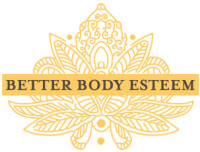
In a previous blog post, I presented the Five A’s of Better Body EsteemTM, beginning with awareness. When we look at 12 Step recovery programs, awareness is about admitting you have a problem. In the Transtheoretical (Stages of Change) model developed by Prochaska and DiClemente, it’s the contemplation stage you reach once you’ve passed through denial (pre-contemplation stage).
Lack of awareness and information can lead to misunderstanding, ignorance and hatred – of yourself or others. Awareness can mean opening yourself up to honestly see your own feelings, or educating yourself to better understand what a friend or family member, or society as a whole is going through.
Here are some signs that someone may have body image issues:
- The person is unable to accept a compliment, always discounting the statement or changing the subject
- The person has put their life on hold until they reach a certain weight (e.g., not buying new clothes, starting a relationship, going back to school, finding a job, or participating in activities)
- The person’s only barometer for life is what other people are doing or saying – Buddhist teacher and author Pema Chodron has a saying, “Don’t bite the hook,” meaning that regardless of who around you is talking about dieting or unrealistic/unhealthy eating goals, you don’t need to join them.
You can also take an online quiz called, “Do I Respect My Body?”
These distressing feelings and thoughts about body image can come and go, especially with outside and even unrelated stressors. Keep an eye out for these signs and symptoms, so you can be extra kind to yourself when you need to be.
Most people seek awareness and information first via Internet search or social media these days, though it’s important to choose bloggers and sites that support body positivity and non-diet approaches. We love books at White Picket Fence Counseling Center, so please contact us for our recommendations. We’d love to know your recommendations, too, so feel free to direct message us on Facebook or Instagram.
If you’re having trouble tuning out the negative self-talk, in your own head or amongst the people in your life, these resources can help you tune in to a healthier reality. You can also tune into NPR.org or TED.com to be inspired by today’s intelligent and creative thinkers.
